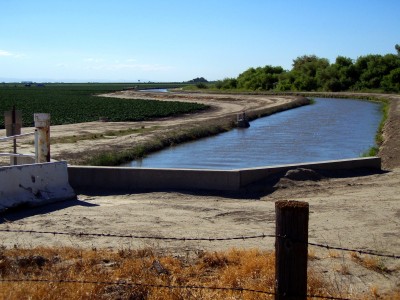Climate Adaptation
Giving Indigenous Peoples a Voice at COP20
Observations from the Lima UN Climate Conference – by Sarah Kozal
This post is by Sarah Kozal, UCLA School of Law Class of 2016, who participated in the Lima COP last week as part of UCLA’s delegation. One surprise of COP20 has been the large presence of indigenous peoples’ issues and voices. In particular, many of the side events at the conference have focused not only …
Continue reading “Giving Indigenous Peoples a Voice at COP20”
CONTINUE READINGThe Future of Conservation
Earlier this year I wrote critically about a New York Times op-ed that proposed making the restrictions on development in wilderness areas more flexible in order to allow for adaptation to climate change. This week the Times published what I think is a much more helpful op-ed on the topic of how we should address …
Continue reading “The Future of Conservation”
CONTINUE READINGLessons From an Epidemic
Ebola’s natural reservoirs are animals, if only because human hosts die to too quickly. Outbreaks tend to occur in locations where changes in landscapes have brought animals and humans into closer contact. Thus, there is considerable speculation about whether ecological factors might be related to the current outbreak. (See here). At this point, at least, we …
Continue reading “Lessons From an Epidemic”
CONTINUE READINGIntegrating Climate Mitigation and Adaptation, or: I’m in BIG Trouble
Don’t Try This At Home
A couple of weeks ago, I noted in a discussion of water and climate change, that in many cases, seeking to adapt to climate change effects might actually wind up undermining efforts to mitigate it. My example was lining irrigation canals, but there are lots of them out there. I began to think “Gosh. There …
Continue reading “Integrating Climate Mitigation and Adaptation, or: I’m in BIG Trouble”
CONTINUE READINGWater and Climate Change, Backwards
Will Conserving Water Contribute to Global Warming?
All of us (except Republicans and adherents of Movement Conservatism) know that climate change is dangerous for rising temperatures, but also because of its effects on other natural resources. Most significantly, it is hardly news that increasing and variable temperatures will reduce, for example, the Sierra snow pack and cause greater evaporation, eventually leading to …
Continue reading “Water and Climate Change, Backwards”
CONTINUE READINGOnly You
Happy birthday to the federal government’s most recognizable environmental advocate
The U.S. Forest Service is a key actor in a lot of environmental and land use policy decisions. It oversees the national forests and handles various research and conservation efforts. The Service is a common defendant in environmental suits, often as a result of its substantial permitting duties. But what USFS is best known for …
CONTINUE READINGClimate Change Adaptation Strategy: Can California Do More?
Is Increased Reliance on the Public Trust Doctrine an Essential Part of Effective State Adaptation Policy?
I often tell students in my Climate Change Law and Policy course that adaptation–that is, how we can best adapt to the unavoidable impacts of climate change–is the poor stepchild of the debate over greenhouse gas emissions and climate change. By that I mean that climate change mitigation (i.e., how to reduce greenhouse gas emissions) generates far more …
Continue reading “Climate Change Adaptation Strategy: Can California Do More?”
CONTINUE READINGThe Wilderness Act and climate change
Changing the Wilderness Act to respond to climate change is a terrible idea
The Wilderness Act is one of the iconic pieces of environmental legislation, and it is 50 years old this year. It created a process and management standard by which millions of acres of relatively undeveloped federal land were protected from development and most forms of active human management. These lands are to be managed, as …
Continue reading “The Wilderness Act and climate change”
CONTINUE READINGReassuringly Stupid
The House GOP’ is trying to stop the Pentagon from thinking about climate change. Here’s why it won’t work.
The military considers climate change to be a threat to national security. Naturally, that’s news that the House Republicans would like to suppress. Last week, they tried to do something about it with an appropriations rider. Luckily, the amendment is so poorly drafted that it would accomplish almost nothing. Here’s the language of the amendment: None …
Continue reading “Reassuringly Stupid”
CONTINUE READINGInsurance for Climate Disasters
Nobel-prize winning economist Robert Schiller has a New York Times op-ed about the need for insurance against risks of climate change. Speaking of the latest U.S. climate assessment, he writes: After discussing how to mitigate the coming dangers, the report says, “Commercially available mechanisms such as insurance can also play a role in providing protection against …
Continue reading “Insurance for Climate Disasters”
CONTINUE READING









